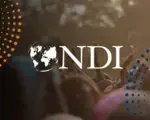Gubernatorial
Displaying search results 1511 - 1520 of 5108

General
2020 Belize General Elections

General
2021 Zambia General Elections

General
2021 Honduras General Elections

General
2021 Nicaragua General Elections

Legislative
Municipal
2021 El Salvador Legislative and Municipal Elections

Presidential
Referendum
2021 Kyrgyzstan Presidential and Referendum Elections

Presidential Runoff
2020 Moldova Presidential Runoff Elections

Parliamentary
2021 Kazakhstan Parliamentary Elections

General
2021 Uganda General Elections

